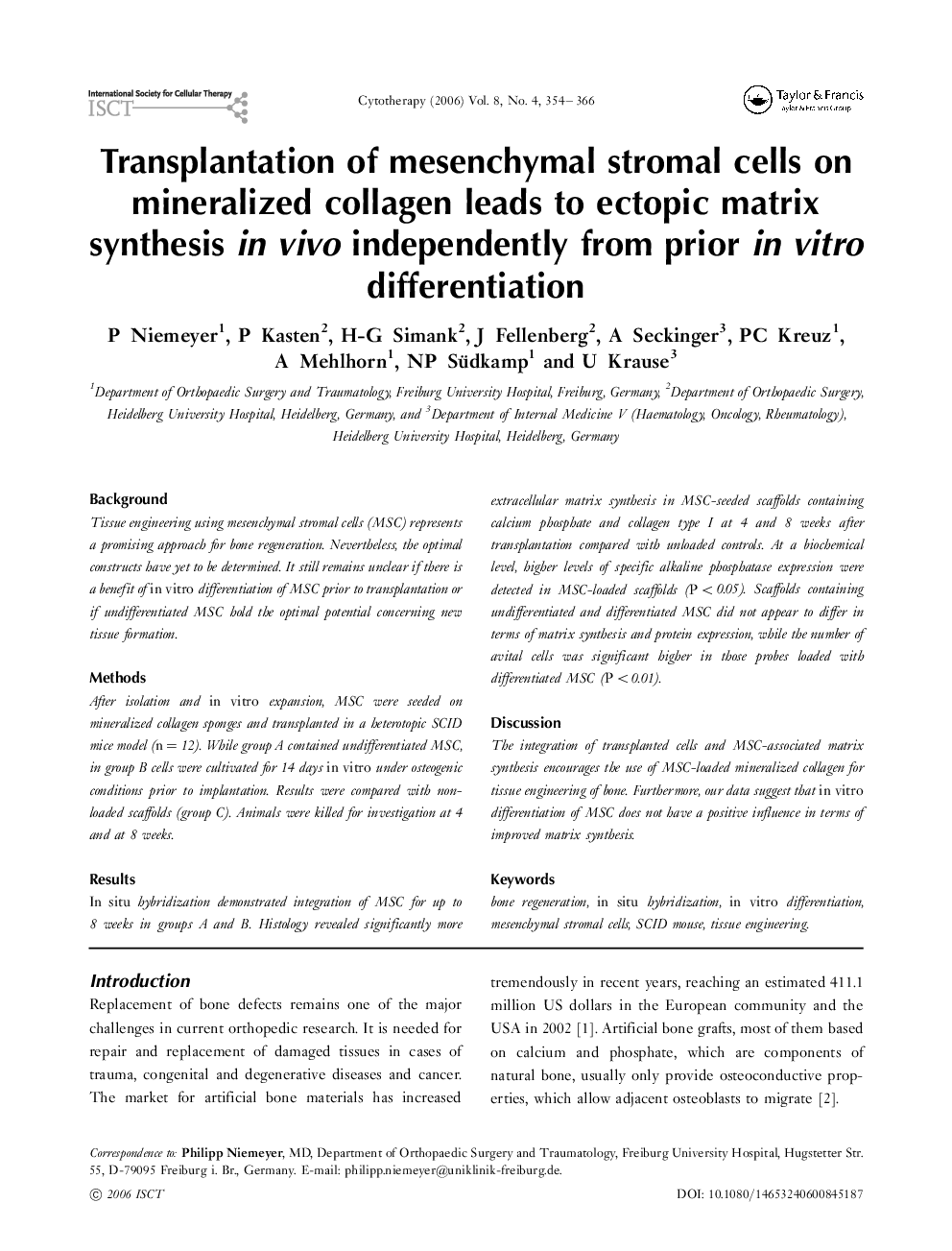| Article ID | Journal | Published Year | Pages | File Type |
|---|---|---|---|---|
| 2172690 | Cytotherapy | 2006 | 13 Pages |
BackgroundTissue engineering using mesenchymal stromal cells (MSC) represents a promising approach for bone regeneration. Nevertheless, the optimal constructs have yet to be determined. It still remains unclear if there is a benefit of in vitro differentiation of MSC prior to transplantation or if undifferentiated MSC hold the optimal potential concerning new tissue formation.MethodsAfter isolation and in vitro expansion, MSC were seeded on mineralized collagen sponges and transplanted in a heterotopic SCID mice model (n = 12). While group A contained undifferentiated MSC, in group B cells were cultivated for 14 days in vitro under osteogenic conditions prior to implantation. Results were compared with non-loaded scaffolds (group C). Animals were killed for investigation at 4 and at 8 weeks.ResultsIn situ hybridization demonstrated integration of MSC for up to 8 weeks in groups A and B. Histology revealed significantly more extracellular matrix synthesis in MSC-seeded scaffolds containing calcium phosphate and collagen type I at 4 and 8 weeks after transplantation compared with unloaded controls. At a biochemical level, higher levels of specific alkaline phosphatase expression were detected in MSC-loaded scaffolds (P < 0.05). Scaffolds containing undifferentiated and differentiated MSC did not appear to differ in terms of matrix synthesis and protein expression, while the number of avital cells was significant higher in those probes loaded with differentiated MSC (P < 0.01).DiscussionThe integration of transplanted cells and MSC-associated matrix synthesis encourages the use of MSC-loaded mineralized collagen for tissue engineering of bone. Furthermore, our data suggest that in vitro differentiation of MSC does not have a positive influence in terms of improved matrix synthesis.
